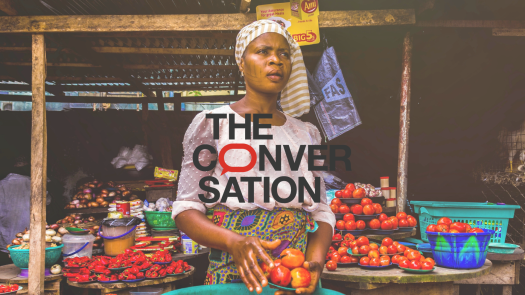Food & Nutrition
Women's Health
Post-Doctoral Fellowships
United Kingdom
Towards healthier culinary practices among overweight and obese Ghanaian women
This article summarizes the outcomes of the postdoctoral project strated in: 11/01/2019
There is an abnormally high prevalence of obesity and associated diseases, such as type-II diabetes, cancers and high blood pressure, among Ghanaian women, whether they live in Ghana or elsewhere. Could the traditional Ghanaian diet be contributing to this health problem?
To answer this question, post-doctoral researcher at the University of Sheffield in the UK and AXA Research Fund Women Health Fellowship Grantee Hibbah Osei-Kwasi has been studying what Ghanaian women in Ghana and Ghanaian immigrant women in England eat on a daily basis and how they prepare their meals at home. Contrary to the popular conception that immigrants succumb to the fast-food culture in their host high-income countries, seemingly healthy traditional diets can also contain excess calories and fat.
Hibbah found that Ghanaian women, in both Ghana and the UK, often cook from scratch and adhere to the idea of feeding their families in culturally acceptable ways. Indeed, many women maintain their traditional diets after migrating and perceive their dietary practices as being healthy, so dissociating them from overweight and obesity. Another major result was that despite recognizing obesity as an important health issue, Ghanaian women did not see changing their cooking behaviours as a priority.
The research suggests that socio-cultural “rules” often dictate which foods are considered preferable and that cooking, for Ghanaian women has a range of dimensions. Perception of “food cooking”, while certainly linked to nutrition and health, also have social and emotional associations. There is therefore the need to continue to challenge the idea that women lack the knowledge or will to cook healthy food. Indeed, they know what healthy and unhealthy diets and cooking entails. Instead, health promotion interventions need to emphasise the cultural and emotional connotations of cooking in addition to the usual emphasis on physical health recommendations. Nutritionists also need to work together with other disciplines, such as the arts and media, to make a significant impact.
The results for this study were obtained thanks to photovoice interviews and a community readiness model (CRM) using a semi-structured interview tool with key informants, such as religious and other key community members. Photovoice is a participatory photography and digital storytelling method that provides an accessible way to describe real-world situations. Questions like: what comes to mind when you think of good cooking; what comes to mind when you think of cooking Ghanaian foods; what makes cooking easy/difficult for you?
The evidence garnered from this project has already been shared with academic and non-academic audiences (e.g. conferences, publications and community workshops via zoom). This has produced evidence to help reduce obesity and related health problems among women of African origin in the UK and beyond through context-specific and culturally appropriate interventions. For example, a community-based intervention to improve lifestyle behaviours (1).
(1)
https://www.youtube.com/watch?v=jjV-NAQ89kY
Women's Health Fellowhip: Outcome Summary
The following article summarizes all outcomes from 8 postdoctoral research projects from the Women's Helath Fellowship.
Read More
Why Traditional Cooking Isn’t Always Healthier: The Case of Ghanaians in Manchester and in Accra
In this article, Dr. Hibbah Araba Osei-Kwasi, an AXA post doctoral fellow at University of Sheffield explores the drivers and health impacts of dietary practices of ghanaian migrants in the UK.
Read the article

Hibbah
OSEI KWASI
Institution
University of Sheffield
Country
United Kingdom
Nationality
Ghanaian
Related articles
Women's Health
AXA Chair
Spain
Understanding Menopause's Effect on Women's Cardiovascular Risk
Cardiovascular disease (CVD) is the leading cause of mortality for women worldwide, yet women remain understudied. Atherosclerosis, the main pathology underlying... Read more
.thumbnail.jpg)
Inés
PINEDA-TORRA
University of Seville
Pollution & Health
Food & Nutrition
Post-Doctoral Fellowship
France
Investigating the Impact of Glyphosate on Health: The Role of Gut Microbiota
Dr. Lauris Evariste aims to investigate the impact of chronic glyphosate exposure on the mouse and human gut microbiota and... Read more

Lauris
EVARISTE
Institut National de Recherche pour l'Agriculture, l'Alimentation et l'Environnement
Mental Health & Neurology
Women's Health
Pandemics & Infectious Diseases
AXA Award
Spain
The Effects of the COVID-19 Pandemic on the Mental Health of Mothers and Newborns
Early results are expected in less than 12 months and will help bridge a critical gap in research. Indeed, “in... Read more

Maria
FORASTER